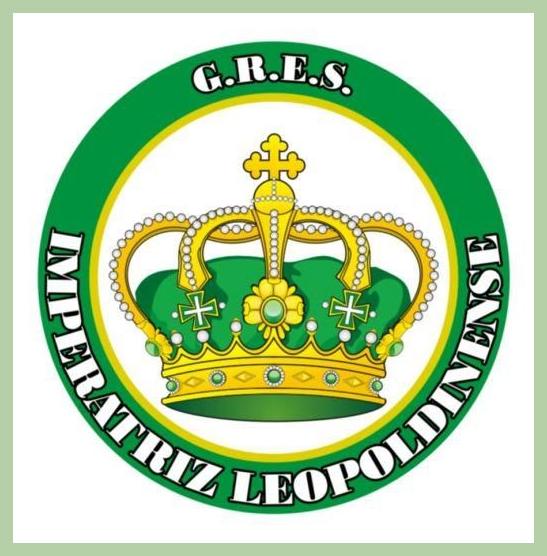 G.R.E.S. Imperatriz Leopoldinense (RJ)
G.R.E.S. Imperatriz Leopoldinense (RJ)
G.R.E.S. Imperatriz Leopoldinense: A Symphony of Freedom and Controversy
In the annals of Brazilian music, the samba-enredo "Liberdade, Liberdade! Abra as asas sobre nós" (1989) stands as a testament to the indomitable spirit of the G.R.E.S. Imperatriz Leopoldinense. This iconic song, composed by Arlindo Cruz, Aluísio Machado, e Zé Katimba, became an anthem of freedom and a catalyst for social change.
Origins and Challenges
The song emerged amidst the tumultuous political landscape of Brazil in the late 1980s. The country was transitioning from military dictatorship to democracy, and the people yearned for a new era of liberty. Imperatriz Leopoldinense, a samba school from the heart of Rio de Janeiro's favelas, seized the opportunity to voice this collective longing.
Despite the song's message of hope, it faced significant challenges. The military government regarded the lyrics as subversive, and the band faced pressure and threats. Undeterred, Imperatriz Leopoldinense pressed on, determined to deliver their message to the masses.
Discography and Controversies
The song "Liberdade, Liberdade!" became the title track of Imperatriz Leopoldinense's 1989 samba-enredo. The album, released by RGE, showcased the band's masterful blend of samba, funk, and Afro-Brazilian rhythms.
The album sparked controversy not only for its political message but also for its inclusion of the song "Quem é o dono do mundo?" (Who owns the world?). This song, written by Arlindo Cruz and Aluísio Machado, criticized the inequality and exploitation prevalent in Brazilian society.
Members and Legacy
The members of Imperatriz Leopoldinense who played a pivotal role in the creation of "Liberdade, Liberdade!" include:
* Arlindo Cruz (composer, vocalist)
* Aluísio Machado (composer, vocalist)
* Zé Katimba (composer, vocalist)
* Jorginho do Império (vocalist)
* Neguinho da Beija-Flor (vocalist)
The song's impact extended far beyond the samba community. It became a symbol of the struggle for freedom and social justice, inspiring countless artists, activists, and ordinary Brazilians. Today, "Liberdade, Liberdade!" remains a timeless masterpiece, a testament to the power of music to uplift, unite, and transform society.
In the annals of Brazilian music, the samba-enredo "Liberdade, Liberdade! Abra as asas sobre nós" (1989) stands as a testament to the indomitable spirit of the G.R.E.S. Imperatriz Leopoldinense. This iconic song, composed by Arlindo Cruz, Aluísio Machado, e Zé Katimba, became an anthem of freedom and a catalyst for social change.
Origins and Challenges
The song emerged amidst the tumultuous political landscape of Brazil in the late 1980s. The country was transitioning from military dictatorship to democracy, and the people yearned for a new era of liberty. Imperatriz Leopoldinense, a samba school from the heart of Rio de Janeiro's favelas, seized the opportunity to voice this collective longing.
Despite the song's message of hope, it faced significant challenges. The military government regarded the lyrics as subversive, and the band faced pressure and threats. Undeterred, Imperatriz Leopoldinense pressed on, determined to deliver their message to the masses.
Discography and Controversies
The song "Liberdade, Liberdade!" became the title track of Imperatriz Leopoldinense's 1989 samba-enredo. The album, released by RGE, showcased the band's masterful blend of samba, funk, and Afro-Brazilian rhythms.
The album sparked controversy not only for its political message but also for its inclusion of the song "Quem é o dono do mundo?" (Who owns the world?). This song, written by Arlindo Cruz and Aluísio Machado, criticized the inequality and exploitation prevalent in Brazilian society.
Members and Legacy
The members of Imperatriz Leopoldinense who played a pivotal role in the creation of "Liberdade, Liberdade!" include:
* Arlindo Cruz (composer, vocalist)
* Aluísio Machado (composer, vocalist)
* Zé Katimba (composer, vocalist)
* Jorginho do Império (vocalist)
* Neguinho da Beija-Flor (vocalist)
The song's impact extended far beyond the samba community. It became a symbol of the struggle for freedom and social justice, inspiring countless artists, activists, and ordinary Brazilians. Today, "Liberdade, Liberdade!" remains a timeless masterpiece, a testament to the power of music to uplift, unite, and transform society.